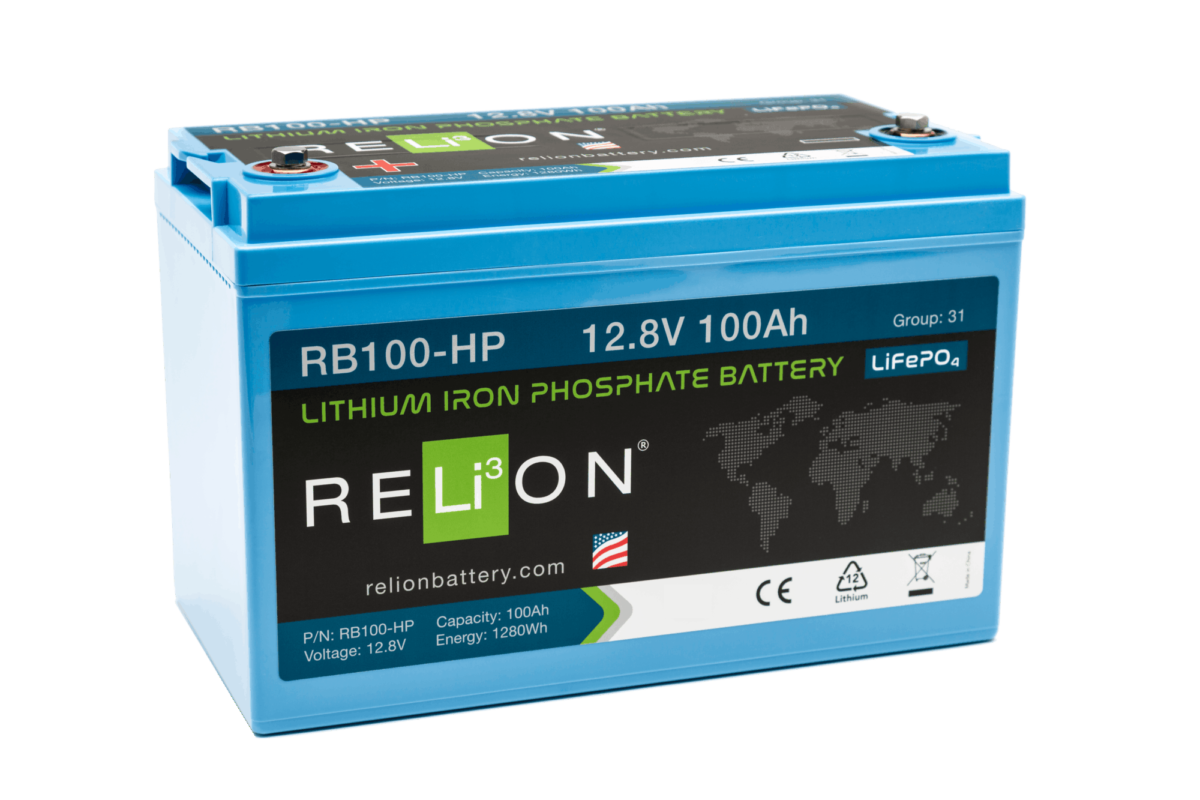Switching to a LiFePO4 battery can seem like a daunting task at first, but it doesn’t have to be! Whether you’re a battery novice excited to make the switch to lithium or a tech guru who’s trying to figure out how much power you’ll need, RELiON has the answers you seek!
We want to make it easy for you to better understand LiFePO4 batteries. That's why we've compiled a list of questions we get asked all the time.
What is a BMS? What does it do and where is it located?
BMS stands for Battery Management System. The BMS protects the cells from getting damaged — most commonly from over or under-voltage, over-current, high temperature, or external short-circuiting. The BMS will shut off the battery to protect the cells from unsafe operating conditions. All RELiON batteries have a built-in BMS to manage and protect them against these types of issues.
How long will my RELiON lithium battery last?
Battery life is measured in life cycles and RELiON’s LiFePO4 batteries are typically rated to deliver 3,500 cycles at 100% depth of discharge (DOD). Actual life expectancy is dependent on several variables based on your specific application. If used for the same application, a LiFePO4 battery can last up to 10X longer than a lead-acid battery.
What 12V 100Ah Battery Is Right For Me?
Some key differences to consider:
RB100 battery: our standard group 31 lithium iron phosphate battery
RB100-D battery: a DIN size battery, commonly used in Europe.
RB100-HP battery: a dual-purpose battery, which provides a higher peak current than our standard RB100.
RB100-LT battery is designed specifically for cold weather charging.
Learn more about the different RELiON Series of batteries.
Does RELiON offer a starting battery?

Yes, our HP Series are dual-purpose batteries specifically for applications that require occasional starting power. These batteries can serve as your cranking battery, where the rated peak current for 5-10 seconds is sufficient, and to run your motor or equipment.
Current products within the HP Series:
RB100-HP: ideal for bass boats, shallow bottom boats, and more
RB300-HP: ideal for boats with larger power requirements such as sailboats and catamarans
Can I Upgrade to LFP Batteries?
As with any battery replacement, you need to consider your capacity, power, and size requirements, as well as make sure you have the right charger. Keep in mind, when upgrading from lead-acid to LiFePO4, you may be able to downsize your battery (in some cases up to 50%) and keep the same runtime. Most existing charging sources are compatible with our lithium iron phosphate batteries. Please contact RELiON technical support if you need assistance with your upgrade and they will be happy to make sure you pick the right battery.
What's DOD mean and how deep can a lithium iron phosphate battery be discharged?
DOD stands for depth of discharge. When a battery is discharged, the amount of energy taken out will determine the depth at which it was discharged. LiFePO4 batteries can be discharged up to 100% without risk of damage. Make sure you charge your battery immediately after discharge. We recommend discharging be limited to 80-90% depth DOD to avoid the BMS disconnecting the battery.
Can I use my existing lead-acid battery charger (Wet, AGM or Gel) to charge RELiON lithium iron phosphate batteries?
Most likely, yes. Our lithium batteries are very charger-friendly. Most chargers today have a lithium charge profile, which is what we recommend using. AGM or gel charge profile chargers will work with our batteries. We do not recommend the use of a flooded charge profile with our batteries. These chargers may reach the overvoltage protection limit and disconnect. It won’t damage the battery but will likely result in charger faults.
Can I use my alternator to charge my lithium iron phosphate batteries?
RELiON batteries can be charged with most alternators. Depending on the quality of the alternator, it should work with LiFePO4 batteries. Low-quality alternators with poor voltage regulation can cause the BMS to disconnect LiFePO4 batteries. If the BMS disconnects the batteries, the alternator could be damaged. To protect your LiFePO4 battery and alternator please be sure to use a compatible high-quality alternator or install a voltage regulator. Please contact RELiON technical support if you need assistance.
Interested in more? Check out our full FAQ page for a comprehensive list of commonly asked questions.
Do you still have a question? Contact us and someone from our Technical Support team will be in touch.
